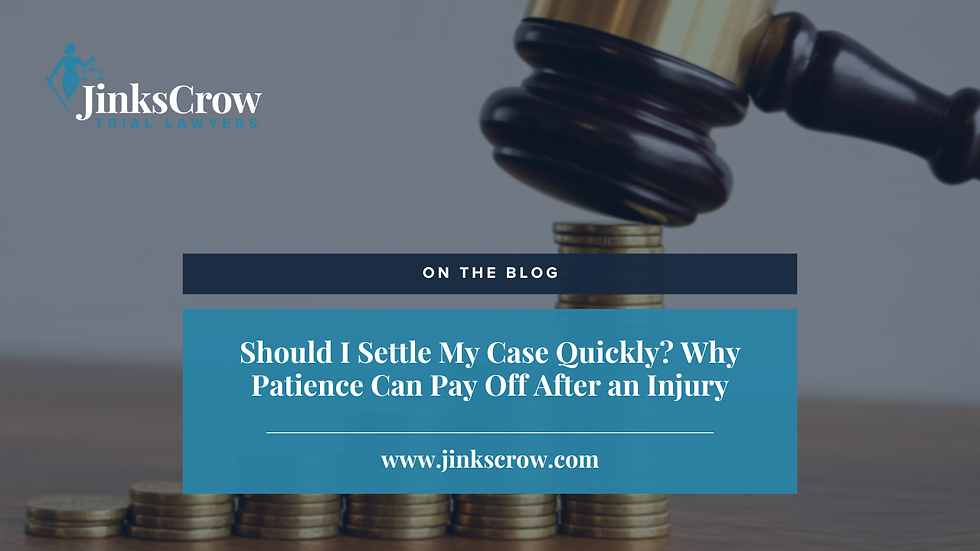How to Build a Dram Shop Case
- Jinks Crow

- Jul 21, 2021
- 3 min read

Dram Shop cases require establishing liability for serving alcoholic beverages that ultimately results in death or injury to the person served or to someone else injured by the person that was served alcoholic beverages. Dram shop liability is governed by statute. Alabama Code Section 6-5-71 sets forth liability against any “person or business that provided alcohol to the culprit.”
This means that if someone is served alcohol by a restaurant, bar, or person after visibly intoxicated and causes an accident, the business or person who served alcohol to the drunk driver can be held responsible for the injuries. Further, Alabama’s Administrative Code Section 20-X-6-.02(4) governs the licenses for bars and restaurants that serve alcohol and forbids serving alcohol to those who appear to be intoxicated. Other states have similar dram shop liability provisions.
Like most cases, a Dram Shop case has some unique challenges and requires work if it is to be successful. And that work starts long before striking a jury or even filing the complaint.
1. One of the first tasks is identifying the potential defendants.
Some good resources to review include an assortment of public records, including business licenses, real property ownership records, and Alabama ABC (Alcoholic Beverage Control Board) records. Some records are easy to get and are easily accessible. Others require a little effort.
Sometimes you need to file suit against obvious defendants like the drunk driver and then obtain records with subpoenas to identify other potential defendants. Establishments that serve alcohol are often related to other entities which manage them, provide employees, provide supervisory employees, manage franchises, or even separately own and manage the distribution of alcohol within a restaurant. Asking the right questions and thoroughly reviewing the documents gathered is critical.
2. Next, the damages must be ascertained.
Compensatory and punitive damages are allowed in Dram Shop actions in Alabama. See, Wiggins v. Mobile Greyhound Park, LLC, 294 So. 3d 709, 723 (Ala. 2019). A death claim can be brought under the Alabama Dram Shop Act and the decedent is entitled to compensatory and punitive damages, which is unique in Alabama.
The Wrongful Death Act does not apply in a Dram Shop case. Under the Dram Shop Act, the claim for punitive damages does not require any heightened culpability or standard of proof. One entitled to compensatory damages is also necessarily entitled to punitive damages.
When a Dram Shop violation occurs, it is usually not the first time. Finding a pattern of wrongful conduct is important so that the jury has a clear understanding of how dangerous and wrong the serving of alcohol has been at the subject establishment.
This requires more than the standard discovery and taking a defendant's first incomplete and inadequate response as fact. But once a defendant commits to a fact or a usual course of dealing, the trap is set. When you find out the truth and it is inconsistent with what you have been told, it is difficult for the defendant to retreat. Then they’re stuck.
3. The key to a Dram Shop case is proving visible intoxication of the person wrongfully served or that they served an underaged individual. In other words, proving that the customer was served after they were already visibly intoxicated.
If you get a lawyer involved early enough and they are able to determine where the drunk driver was served alcohol, there can be video footage that helps. That is usually not the case, however. That is when you need the right expert.
The Supreme Court has specifically allowed circumstantial evidence to show the totality of the circumstances and thus the visible intoxication. An expert can calculate the number of drinks someone had to reach a certain blood alcohol level and testify as to the signs of visible intoxication that would be shown along the way. Another helpful source of evidence available in some cases is those associated with any related criminal proceedings, such as the indictment and criminal charges, and any plea agreement.
%20Proof%20%235.png)








Comments